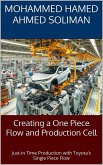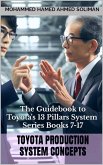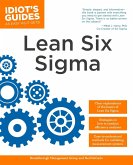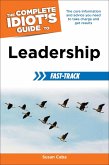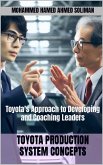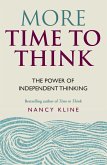Yes, people called the Toyota Prodcution System an inventory reduction program when they first heard of it. "Just in time" is one of the main pillars in the TPS. "Just in time" ideally means "one-piece flow." Inventory is the greatest waste in the process, and it hides many problems, such as quality problems, breakdown times, waiting waste, and more. Let's get back to history. Prior to the 1970 oil crisis, very few people in the world know what Toyota was up to. The fact that it emerged stronger than ever while many of its competitors were quite battered made people take notice. People went to Japan to find out how Toyota had done this. What people found was that Toyota was doing something called "just in time." In the West, this was interpreted as an inventory reduction program. As a result, it became known as the "just-in-time inventory" program. Nobody really believed inventory could be taken out of the whole value stream. Therefore, "just in time" came to mean "go beat the heck out of your suppliers." The big three auto companies (Ford, General Motors, and Chrysler) had lots of power over their suppliers, and they became pretty expert at this tacticto their eventual detriment. James P. Womack came forward with Lean Thinking in 1996 and helped many to see the whole value chain. He showed how waste clogs the system and how continuous improvement was needed to link all parts of the chain to customer demand. He explained his findings in plain English, but once again people didn't hear. Lean might be an element of the larger strategy, but it is most likely to be relegated to plant and manufacturing work. As a result, one company after another has tried lean and failed.
Many people believe that just-in-time inventory equals zero inventory. The ideal situation is one-piece flow, which can only be achieved through the use of a manufacturing cell. The inventory buffer exists, but it is rarely used. The Andon system includes a buffer. There is a safeguard in place to protect your customer. There is a buffer to prevent the entire manufacturing line from being shut down to rectify a problem. There is a buffer in place to prevent the breakdown of a vital manufacturing process.
Just-in-time production is a manufacturing system that produces and delivers only what is required, only when it is required, and only in the amount required. The Toyota Production System is built on two pillars: JIT and jidoka. JIT is based on heijunka and consists of three operating elements: the pull system, takt time, and continuous flow.
Dieser Download kann aus rechtlichen Gründen nur mit Rechnungsadresse in A, B, CY, CZ, D, DK, EW, E, FIN, F, GR, H, IRL, I, LT, L, LR, M, NL, PL, P, R, S, SLO, SK ausgeliefert werden.



